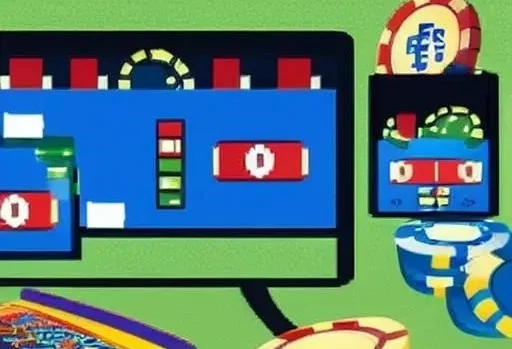

The digital age brought gambling to your home, but a big question remains: are online casinos rigged? We dive deep into game fairness, addressing common skepticism. Discover the real story!
The digital age has undeniably transformed countless industries, and none more dramatically than the world of gambling. With a click, players can access an astounding array of games, from classic slots to live dealer experiences, all from the comfort of their homes. Yet, amidst this convenience and innovation, a persistent question often lingers in the minds of potential players and seasoned enthusiasts alike: how rigged are online casinos? It’s a crucial query, born from a natural skepticism towards systems where vast sums of money exchange hands in a virtual environment. The good news is that for reputable, licensed platforms, the narrative is far more reassuring than the whispers of doubt might suggest.
Far from being opaque, unregulated digital back-alleys, the leading online casino operators are meticulously governed by a complex web of international and national regulations. These frameworks are not merely suggestions; they are robust, legally binding mandates designed to ensure fairness, transparency, and player protection. The industry, driven by technological advancements and an unwavering commitment to integrity, has evolved into a sophisticated ecosystem where trust is paramount. By integrating insights from cutting-edge data analytics and advanced encryption, legitimate online casinos are actively building a future where every spin, every card dealt, and every dice roll is demonstrably fair.
| Key Pillar of Trust | Description & Purpose | Impact on Fairness & Player Protection |
|---|---|---|
| Regulatory Licensing | Governmental bodies (e.g., UK Gambling Commission, Malta Gaming Authority) issue licenses, setting strict operational standards. | Ensures legal compliance, financial stability, and adherence to fair play policies, protecting players from rogue operators. |
| Random Number Generators (RNGs) | Sophisticated algorithms that produce sequences of numbers with no discernible pattern, ensuring game outcomes are truly random. | Guarantees that every game result – be it a slot spin or a card draw – is entirely unpredictable and unbiased, mirroring real-world chance. |
| Independent Auditing | Third-party organizations (e.g., eCOGRA, iTech Labs) regularly test and certify RNGs and payout percentages. | Provides unbiased verification of game fairness and transparency, confirming that games operate as advertised and payout rates are accurate. |
| Data Security & Encryption | Advanced SSL/TLS encryption protocols secure all transactions and personal data, protecting against cyber threats. | Safeguards sensitive player information and financial transactions, preventing fraud and unauthorized access. |
| Responsible Gaming Tools | Features like deposit limits, self-exclusion options, and reality checks to help players manage their gambling habits. | Promotes a safe and sustainable gaming environment, empowering players to maintain control and seek help if needed. |
At the heart of any truly fair online casino lies the Random Number Generator (RNG). This incredibly sophisticated piece of software is the digital equivalent of a perfectly shuffled deck of cards or a precisely weighted roulette wheel, albeit operating at speeds and complexities unimaginable in the physical realm. The RNG’s sole purpose is to produce sequences of numbers that are entirely unpredictable, ensuring that every game outcome – from the spin of a slot machine reel to the deal of a blackjack hand – is genuinely random and unaffected by previous results or external factors. These aren’t just arbitrary programs; they are rigorously tested, often by independent bodies like eCOGRA or iTech Labs, which conduct millions of simulations to certify their impartiality. Without these certified RNGs, the very foundation of fair play would crumble, but their widespread implementation is a testament to the industry’s commitment to verifiable randomness.
Beyond the technological bedrock of RNGs, the regulatory landscape plays an absolutely pivotal role. Jurisdictions such as the United Kingdom, Malta, Gibraltar, and Curacao have established some of the most stringent licensing requirements in the world. Operators seeking to serve players in these regions must undergo exhaustive background checks, demonstrate robust financial stability, and prove their adherence to strict operational guidelines. This includes maintaining transparent terms and conditions, providing secure payment methods, and, crucially, offering mechanisms for player dispute resolution. These regulatory bodies act as vigilant watchdogs, possessing the power to impose hefty fines, suspend licenses, or even revoke them entirely for non-compliance. Their active oversight transforms the digital casino space from a potential free-for-all into a highly structured and accountable environment.
The future of online casinos is undeniably bright, promising even greater levels of transparency and player empowerment. Advancements in blockchain technology and decentralized gaming platforms are beginning to offer innovative solutions, potentially allowing players to verify game outcomes themselves through cryptographic proofs. This emerging trend, while still in its nascent stages, points towards an exciting future where trust is not just promised but mathematically verifiable. As technology continues its relentless march forward, and regulatory bodies adapt to these new frontiers, players can look forward to an era of unparalleled confidence in the fairness and integrity of their chosen online gaming destinations. The era of unfounded skepticism is giving way to one of demonstrable fairness, driven by innovation and unwavering industry standards.